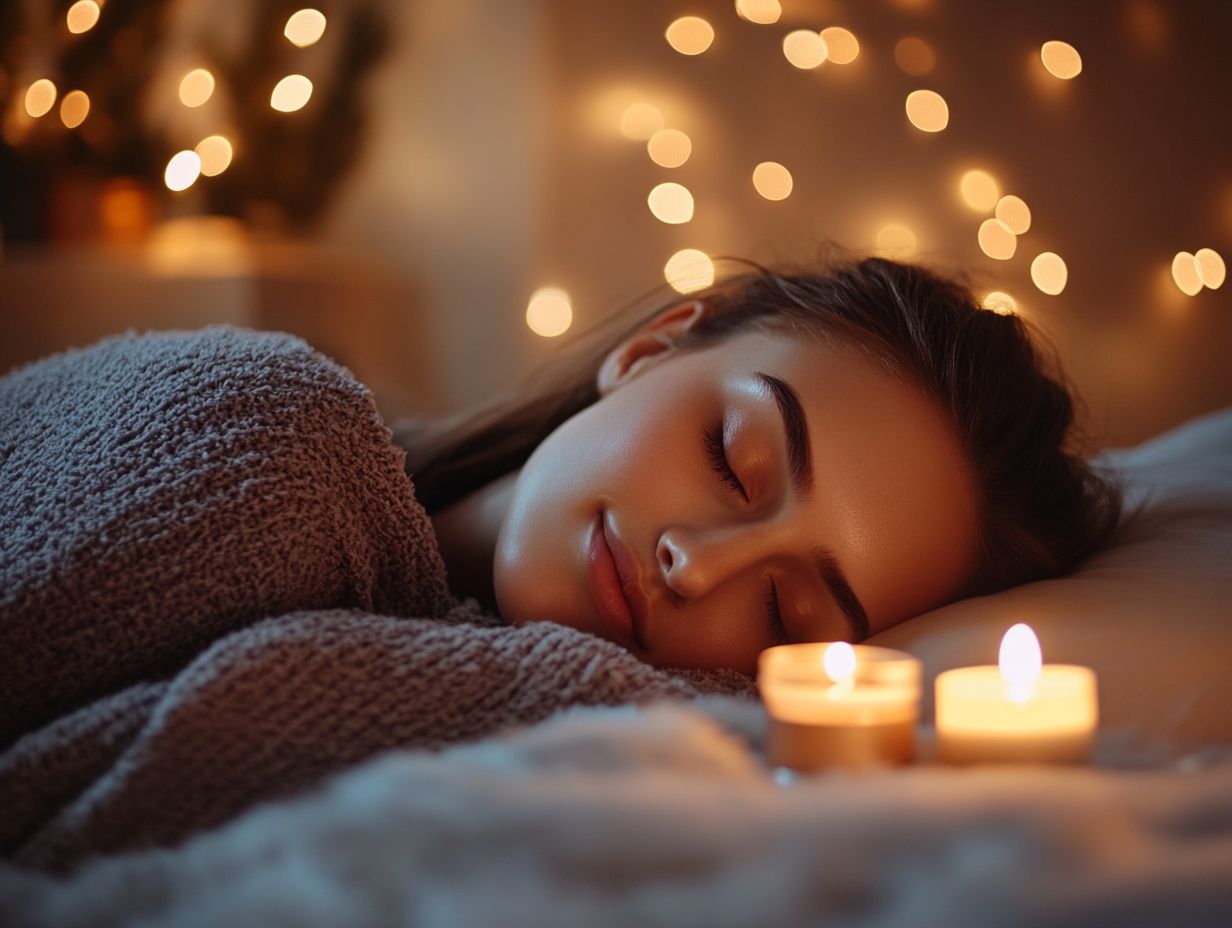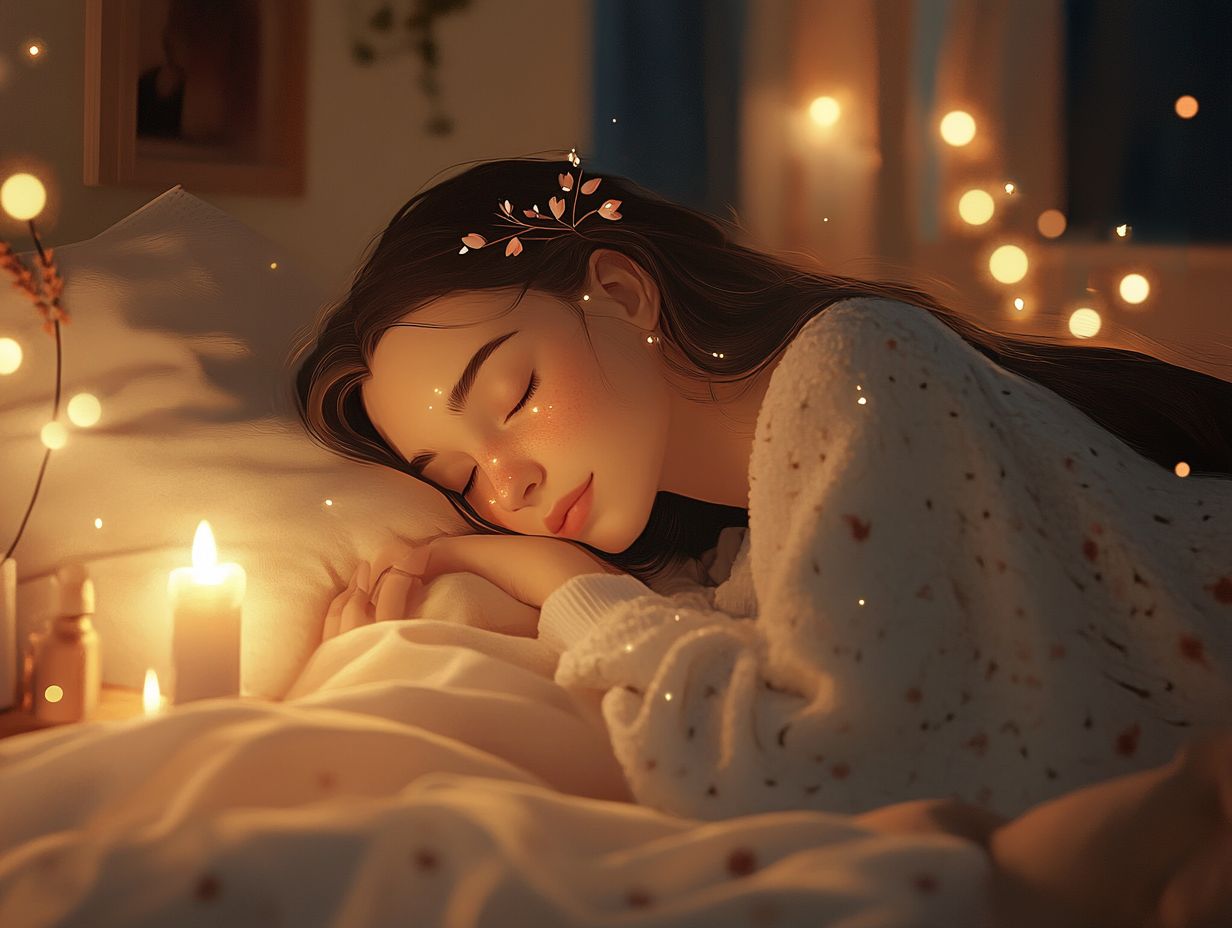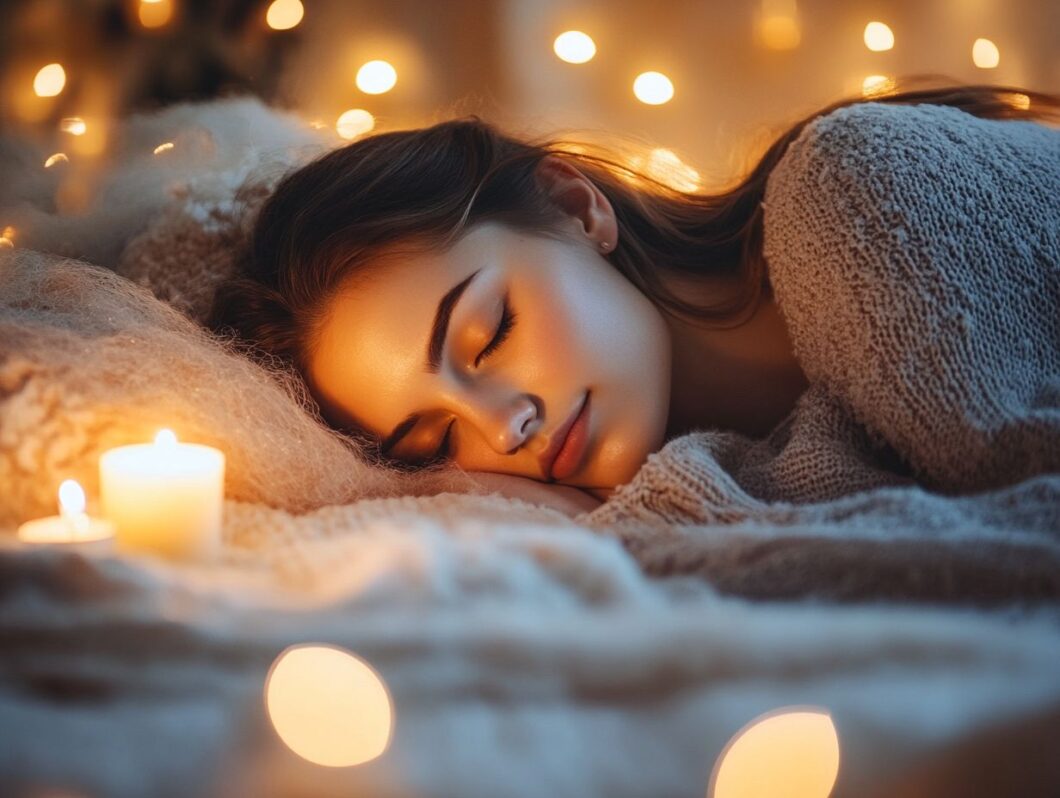“Beauty sleep” is more than just a catchy phrase; it is an essential component of overall health and appearance. In this article, I will explore what “beauty sleep” truly means and how the quality of sleep directly affects skin and hair.
I will reveal the secrets to achieving radiant skin and luscious locks, as well as provide practical tips to enhance the sleep environment. Additionally, I will discuss other crucial factors, such as diet and exercise, that contribute to a comprehensive beauty sleep routine.
Get ready to unlock the true potential of your beauty rest.
Key Takeaways:
What is Beauty Sleep?

Beauty sleep is a term that captures the essential relationship between restful sleep and its significant effects on skin health and overall well-being. It encompasses the restorative processes the body experiences during sleep, which are crucial for maintaining youthful skin, enhancing hydration levels, and supporting the natural collagen production necessary for skin rejuvenation.
In an era where sleep deprivation is prevalent, recognizing the importance of beauty sleep enables individuals to adopt improved nighttime routines that complement their skincare regimens effectively.
Defining the Concept
Defining beauty sleep encompasses more than just aesthetics; it involves recognizing how sleep quality profoundly impacts skin health and overall appearance. The concept highlights that adequate sleep facilitates essential processes, such as collagen production and skin recovery, which are vital for achieving clear and youthful skin.
Establishing a consistent nighttime routine can further optimize the benefits of beauty sleep and enhance skincare results.
When the body enters a deep state of rest, it allows for cellular repair and renewal, which is crucial for maintaining a radiant complexion. During these hours, the skin actively works to repair damage caused by environmental stressors, and this restorative process is closely linked to the quality of one’s sleep.
Incorporating a calming nighttime routine can create a conducive environment for improved sleep quality, facilitating a smoother transition into restful slumber. This routine may include activities such as:
- Applying nourishing serums
- Using soothing cleansers
- Practicing relaxation techniques to promote both mental tranquility and skin rejuvenation
By prioritizing beauty sleep, I not only enhance my skin’s health but also contribute to my overall well-being.
How Sleep Affects Your Skin

The connection between sleep quality and skin health is both significant and backed by scientific research.
I understand that poor sleep can have detrimental effects on my appearance, including signs of aging and decreased skin elasticity.
Sleep deprivation causes the body to produce higher levels of cortisol, a stress hormone that adversely affects collagen production, resulting in wrinkles and sagging skin.
Thus, it is essential for me to prioritize a full night’s rest to promote skin recovery and maintain a youthful complexion.
Impact on Skin Health and Appearance
I recognize that sleep has a significant impact on skin health and overall appearance, influencing factors such as hydration, elasticity, and the emergence of fine lines and wrinkles. Insufficient sleep not only accelerates the signs of aging but also impairs the skin’s ability to recover and rejuvenate overnight. Therefore, I prioritize quality sleep as an essential component of effective wrinkle treatment and maintaining a vibrant complexion.
When my body is deprived of sleep, it leads to an increase in cortisol levels, a stress hormone that can degrade collagen and compromise the skin’s integrity. This imbalance often presents itself as dull skin, uneven tone, and more noticeable imperfections.
Additionally, a lack of restorative sleep can result in puffiness and dark circles, further detracting from my overall aesthetic. By incorporating good sleep practices—such as establishing a calming bedtime routine and optimizing my sleep environment—I align these habits with my skincare routine, ultimately promoting a healthier, more youthful appearance while combating premature aging.
Investing in both restful nights and targeted skincare can yield remarkable results.
Effects of Sleep on Hair

I recognize that just as sleep is vital for skin health, it also plays a significant role in hair growth and overall hair vitality, a connection that many individuals tend to overlook.
Quality sleep supports essential processes, such as improved hydration levels and enhanced circulation, both of which are crucial for nourishing hair follicles.
On the other hand, sleep deprivation can lead to increased stress, which may contribute to hair loss and weakened strands, ultimately affecting the effectiveness of one’s beauty regimen.
Link Between Sleep and Hair Growth
The connection between sleep and hair growth is essential for understanding how overall health impacts one’s appearance. Quality sleep significantly enhances circulation and nutrient delivery to hair follicles. During sleep, the body engages in critical restorative processes that support hair health. Conversely, sleep deprivation can lead to increased cortisol levels, which can hinder hair growth and potentially result in hair loss.
During the deep stages of sleep, the body’s capacity for self-repair reaches its peak, allowing essential vitamins and minerals necessary for scalp health and hair follicle function to be fully absorbed. As blood circulation improves, these vital nutrients are transported more efficiently to the hair follicles, directly influencing their vitality and growth cycle.
On the other hand, inadequate rest disrupts this process, leading to poor nutrient distribution and ultimately resulting in weaker strands that are more susceptible to thinning and breakage. Such imbalances can also worsen skin health issues, further compromising the environment where hair grows. This underscores the importance of restful sleep as part of a comprehensive approach to maintaining healthy and vibrant hair.
Tips for Better Beauty Sleep

Achieving better beauty sleep is essential for enhancing my skincare routine and promoting healthier skin and hair.
By establishing a consistent nighttime routine that includes relaxing practices, I can significantly improve my sleep quality and attain restful sleep.
This may involve incorporating sleep supplements like melatonin and creating a relaxing environment that supports my body in undergoing the restorative processes necessary for effective beauty sleep.
Practices for Improving Sleep Quality
I have come to understand that practices aimed at improving sleep quality can significantly enhance beauty sleep, resulting in healthier skin and hair. By incorporating calming activities into my nighttime routine, such as reading or meditating, I can help my body unwind. Additionally, sleep supplements like melatonin have proven to assist in promoting restful sleep and regulating sleep cycles.
Establishing a consistent schedule for going to bed and waking up greatly benefits my overall well-being. I find that creating a calming pre-sleep ritual effectively signals my body that it’s time to wind down, fostering a more relaxed state.
Limiting screen time before bed is also crucial, as it reduces blue light exposure that disrupts melatonin production, further emphasizing the importance of quality sleep.
Moreover, a well-rested body is far better equipped to rejuvenate skin cells and maintain healthy hair, thereby enhancing my natural beauty. Prioritizing sleep, therefore, not only supports my mental and physical health but also plays a vital role in maintaining an attractive appearance.
Other Factors That Affect Beauty Sleep
While I recognize that beauty sleep is primarily impacted by the quality of my nighttime rest, I also understand that various factors such as diet, exercise, and my environment play significant roles in enhancing or hindering my sleep.
Consuming antioxidant-rich foods and maintaining a balanced diet can greatly improve my overall skin health and contribute to restful sleep. Furthermore, regular exercise promotes circulation and helps reduce stress, while creating a serene sleeping environment is essential for minimizing sleep deprivation and fostering a more effective nighttime routine.
Diet, Exercise, and Environment
The interplay between diet, exercise, and environment is essential for enhancing beauty sleep and, consequently, skin health. I understand that maintaining a balanced diet rich in antioxidants, along with regular physical activity, not only supports overall wellness but also promotes better sleep quality.
Creating a relaxing environment that is free from disturbances is crucial for reaping the full restorative benefits of beauty sleep.
Incorporating foods such as berries, nuts, and leafy greens into my diet nourishes my skin from within, while staying hydrated is vital for maintaining elasticity and radiance. I also make it a point to avoid heavy meals before bedtime and reduce my caffeine and sugar intake, as these changes significantly improve my sleep quality.
Engaging in moderate exercise, such as yoga or brisk walking, facilitates deeper sleep cycles, allowing my skin the necessary time to repair itself.
I focus on optimizing my sleeping environment by keeping the bedroom cool, dark, and quiet, as this encourages my body to enter a restful state more easily, further promoting skin rejuvenation throughout the night.


